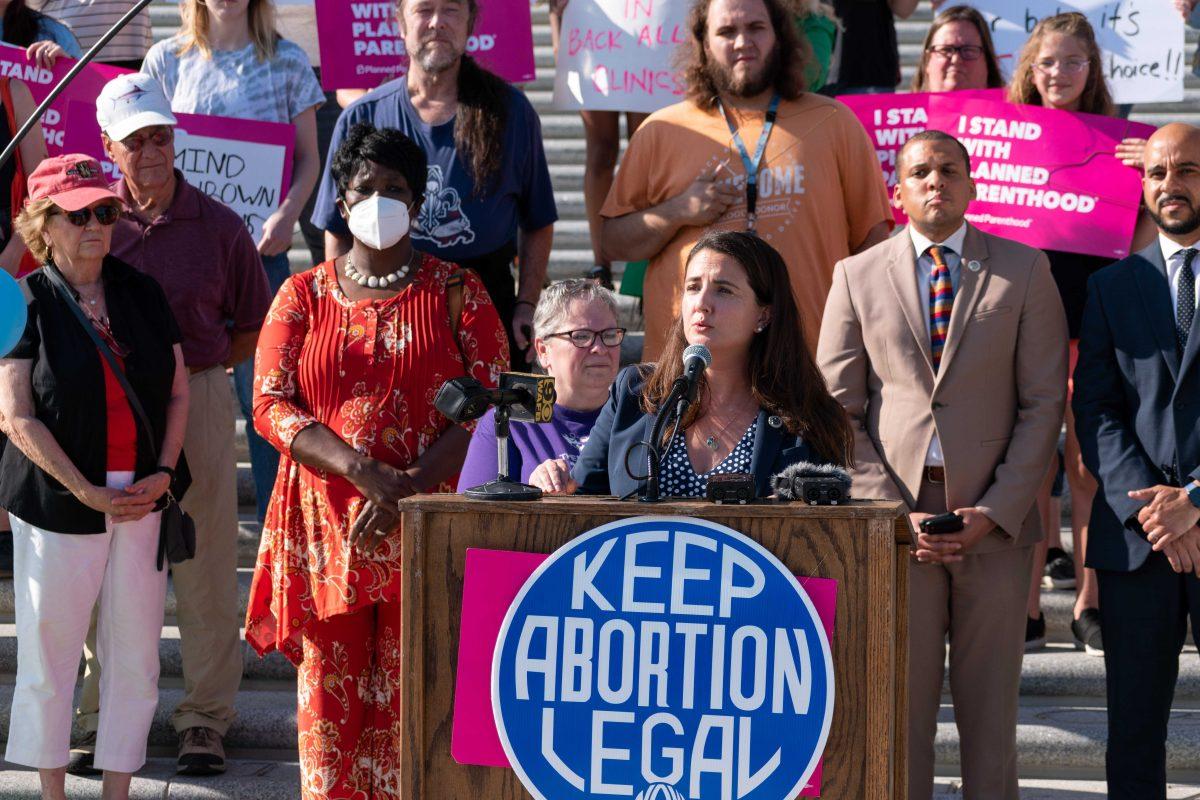On Friday, the Supreme Court overturned Roe v. Wade in a 5-4 decision. The ruling allows for individual states to set their own abortion laws.
“It is time to heed the Constitution and return the issue of abortion to the people’s elected representatives,” Justice Samuel Alito wrote.
The 1973 Roe v. Wade ruling established the constitutional right to abortion in the U.S.
Friday’s ruling didn’t come as a surprise, after a draft of the opinion was leaked in May, leading to weeks of increased tension.
Louisiana is one of 13 states with trigger laws that went into effect after the ruling. Signed in 2006 by former Gov. Kathleen Blanco, a Democrat, Louisiana’s trigger laws ban most abortions.
Updated laws signed last week increase the criminal penalties for abortion providers to up to 10 years of prison time and up to a $100,000 fine, with higher penalties for late-term abortions.
Louisiana has no exceptions for rape or incest. The only exceptions are for the life of the mother or if the fetus has a condition that is not compatible with life outside the womb, which must be certified by two physicians.
Louisiana has also voted to criminalize the sale of abortion pills by out-of-state providers.
The state’s three abortion clinics closed their doors on Friday. People seeking an abortion will have to travel up to 600 miles away.
It’s expected that nearly half of the states will follow suit, outlawing or at least setting heavy restrictions on abortion following the Supreme Court’s decision.
“The Constitution makes no reference to abortion, and no such right is implicitly protected by any constitutional provision, including the one on which the defenders of Roe and Casey now chiefly rely — the Due Process Clause of the Fourteenth Amendment,” Alito wrote. “That provision has been held to guarantee some rights that are not mentioned in the Constitution, but any such right must be ‘deeply rooted in this Nation’s history and tradition’ and ‘implicit in the concept of ordered liberty.”
The justices in favor of overturning Roe included conservatives Samuel Alito, Neil Gorsuch, Brett Kavanaugh, Clarence Thomas, Amy Coney Barrett. Chief Justice John Roberts did not agree with completely overturning Roe.
“The viability line never made any sense,” remarked Roberts, who thought the states should “extend far enough to ensure a reasonable opportunity to choose, but need not extend any further.”
The Court’s opinion argued that abortion was not included in the Fourteenth Amendment’s Due Process Clause, which includes all the rights that are “deeply rooted in this Nation’s history and tradition” but not stated explicitly in the Constitution.
This ruling is expected to affect impoverished minorities the most because they already have limited access to health care resources.
The case Dobbs v. Jackson, revolving around the Mississippi law that banned abortion after 15 weeks on pregnancy, is what sparked the debate between pro-life and abortion rights. According to Gutt Institute, more than 90% of abortions are done in the first 13 weeks of pregnancy.
Interestingly, various sources have released polls on public opinion that show that over 60% of registered voters think Roe’s ruling should be upheld despite statistics that indicate a majority of Americans favor more restrictions on abortion.
“With sorrow—for this Court, but more, for the many millions of American women who have today lost a fundamental constitutional protection—we dissent,” wrote Justices Stephen Breyer, Elena Kagan and Sonia Sotomayor in their dissent.
Following the day of the 50th anniversary of Title IX, many U.S. citizens believe this is a tremendous step back for women’s rights in America.
How the Supreme Court ruling in Roe v Wade affects Louisiana Law
June 24, 2022
Rep. Mandie Landry spoke at the rally, May 3rd.








